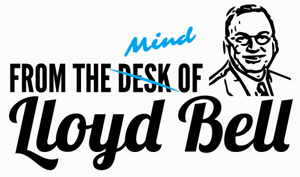Farewell to LIBOR
Over the past 20 years, we have witnessed an almost complete transition in the lower middle-market from prime- based loans to those based on LIBOR (London Interbank Offered Rate). In fact, it’s estimated that there are currently over $350 trillion of loans and other financial products based on LIBOR.
based loans to those based on LIBOR (London Interbank Offered Rate). In fact, it’s estimated that there are currently over $350 trillion of loans and other financial products based on LIBOR.
There are many reasons why the shift occurred, notably the fact that LIBOR is market-based while prime is an administrative rate.
However, the “market” basis of the rate is purely hypothetical and, alas, has been manipulated. (I never thought I’d see the day when the finance industry tried to screw someone.) The response to this revelation is that LIBOR is being phased out and may no longer exist after 2021. I say “may” because you can’t kill a hypothetical rate, you can only ignore it and hope it goes away. Kind of like a stray cat.
No successor rate has been determined as of yet and those that are being kicked around (like the Secured Overnight Financing Rate or SOFR) do not have term elements associated with them (i.e. 30-day, 60-day, etc.) as they are based on overnight rates. The Alternative Reference Rate Committee (how’d that look on your resume?) is responsible for the transition away from LIBOR to a replacement index and is currently proposing the Broad Treasury Financing Rate (BTFR, as in BuT FoR manipulation, we’d still have LIBOR) which is based on US treasury transactions. I’ve heard from some lenders that they’re just switching back to pricing loans based on prime rate. What goes around comes around, right? I knew I should have kept that Member’s Only jacket…
So why do I bring this up? The 2021 expiration of LIBOR falls within the term of many of your loan agreements. A three-year revolver being issued now may not have LIBOR pricing in the third year.
What is particularly important to follow is the language in the loan agreements as it relates to replacement base rates. Some banks are inserting language that allows the agent/lead bank to select the alternative rate without the consent of the borrower. Would you have signed the original loan document if the basis for the interest rate was undefined? No. So take a look at your documents and make sure the language is such that the alternative rate will be selected by the agent bank in consultation with and consent of the borrower and any required lenders.
Contact us if you have questions.
Lloyd W.W. Bell III is Director of the Corporate Finance Group at Meaden & Moore. He has over 30 years of experience in financial management.











